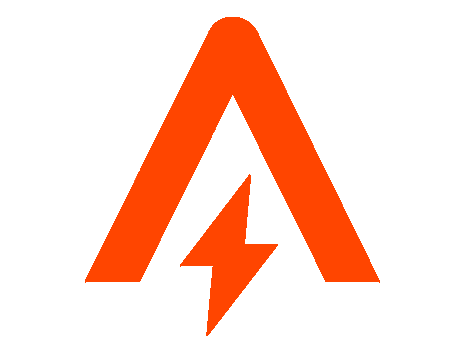Crafting a Nutritious Olive Oil and Vinegar Dressing

Bulking up and adding muscle mass can be a tough challenge, demanding a comprehensive strategy that blends effective nutrition, structured strength training, and sufficient recovery. Many men especially find it tricky to maintain consistency with their diet, which is crucial for muscle development.
Simply consuming enough calories isn’t sufficient; ensuring the intake of adequate protein is vital to significantly boost muscle growth. Protein provides essential amino acids—without which, even the most intense workouts won’t result in substantial muscle gains. Therefore, if your goal is to enhance your physique by becoming as muscular and shredded as possible, a personalized high-protein diet is indispensable.
This ultimate guide offers insights into maximizing muscle-building through protein. You’ll learn about the ideal daily protein intake tailored to your weight and activity level and discover the best whole food sources to include in your meals.
Moreover, you’ll gain valuable tips on timing your protein consumption around workouts to optimize nutrient absorption and muscle growth. If you’re interested in achieving notable muscle gains, read on to learn how a high-protein diet can accelerate your progress in strength and bulk.
Why Protein Matters For Building Muscle
Among the three macronutrients, dietary protein plays a unique role in enhancing muscular development:
- Synthesizing Muscle Protein – Proteins provide essential amino acids, enabling continuous muscle protein production, essential for rapid muscle growth.
- Repairing Training Damage – Intense physical activity causes tiny tears in muscle fibers. Protein consumption aids in repairing these, leading to muscle enlargement.
- Hormone Production – Amino acids contribute to creating crucial hormones like testosterone and IGF-1, which promote protein synthesis and stimulate muscle growth.
For muscle growth to occur, sufficient protein intake is necessary. But how much protein do you actually need?
Daily Protein Intake Recommendations
The ideal amount of protein varies depending on your weight, exercise intensity, and goals. Here are general guidelines:
- Sedentary Adults – 0.8 grams per kilogram of body weight or approximately 0.35 grams per pound. This translates to about 56 grams daily for men and 46 grams for women.
- Endurance Athletes – 1.2-1.4 grams per kilogram or roughly 0.5 to 0.6 grams per pound, to meet metabolic needs.
- Resistance Trainers – Preserving and building muscle requires higher amounts, between 1.6-2.2 grams per kilogram or 0.7-1 gram per pound.
- Aggressive Muscle Building – Up to 2.2 grams per kilogram or 1 gram per pound ensures ample amino acids availability to fully support growth and repair.
For a 175-pound male focused on muscle building, aim for around 175 grams of protein daily. Measure food portions and track your intake to meet daily goals, and ensure proper timing of protein intake.
Optimally Timing Your Protein Intake
Besides meeting daily protein goals, proper meal timing around workouts enhances muscle growth:
- Pre-Workout – Consuming 20-40 grams of protein an hour before exercising maintains amino acid levels, minimizing muscle breakdown during workouts.
- Post-Workout – Another 20-40 grams immediately post-exercise jumpstarts repair and growth by taking advantage of increased nutrient absorption.
- Before Bed – Consuming 30-50 grams of slow-digesting protein before sleeping ensures a steady overnight amino acid supply, as muscle protein synthesis is heightened during sleep.
Following this protein timing strategy around workouts keeps muscles efficiently fueled, setting the stage for rapid strength and size increases.
Best High Protein Food Sources
Incorporate a range of lean, complete protein foods into your daily meals:
- Lean Beef and Lamb – Rich sources of muscle-building leucine, iron, zinc, and B vitamins. Choose lean cuts like 90/10 ground beef and flank steak.
- Skinless Chicken and Turkey – Versatile, lower-calorie poultry pairs well with carbohydrates like rice and vegetables.
- Fish and Seafood – Options like salmon, tuna, cod, and tilapia offer over 20 grams of protein per 3-ounce serving, along with beneficial omega fatty acids.
- Eggs and Whites – Contain BCAAs that aid muscle repair and growth. Hard-boiling eggs make a nutritious snack.
- Greek Yogurt – Provides 23 grams of complete protein per cup, along with probiotics that support digestive and immune health.
- Cottage Cheese – The casein protein in cottage cheese supports sustained amino acid delivery, especially at night. Opt for low-fat versions.
- Protein Powder – Whey and casein supplements offer fast-absorbing and slow-releasing protein forms, complementing whole foods.
Combining these protein sources in meals and snacks makes reaching your daily protein targets straightforward.
Sample High Protein Day Of Eating
Here’s a sample meal plan delivering approximately 200 grams of muscle-building protein:
7 am – Preworkout
- 3 whole eggs + 3 egg whites
- 1 cup of oatmeal
- 1 cup of blueberries
Provides ~40 grams of protein
9:30 am – Post Workout
- Protein shake
- 1 large banana
Provides ~35 grams of protein
Noon – Lunch
- 8 oz chicken breast
- 1 cup brown rice
- 1 cup mixed vegetables
Provides ~50 grams of protein
3 pm – Snack
- Greek yogurt protein parfait
- 30 almonds
Provides ~20 grams of protein
6 pm – Dinner
- 8 oz flank steak
- Sweet potato
- 1 cup broccoli
Provides ~45 grams of protein
9 pm – Before Bed
- Casein protein shake
- 1 tbsp peanut butter
Provides ~25 grams of protein
Achieving a noteworthy muscular physique entails consuming sufficient protein each day to support muscle growth. Aim for 0.7-1 gram per pound of your body weight using whole foods like meats, dairy products, eggs, and supplemented by protein powders. Timing 20-40 grams of protein around your workouts is crucial when muscles are primed for growth. Track your macros to fine-tune your plan as needed.
With a high-protein diet reinforcing your training efforts, prepare to receive compliments on your muscular appearance. Stock up on items like chicken, Greek yogurt, cottage cheese, protein powder, and other protein-rich foods. While it’s important not to overdo protein intake—excessive amounts can strain the kidneys—strategically incorporating high-protein foods into your meal plans will help you achieve faster muscle gains.
Ultimately, building a remarkable physique hinges on consistently consuming adequate high-quality protein. By providing your body with the necessary nutrients, you’ll see impressive muscle development. Start applying this protein-focused strategy for a comprehensive nutritional plan that aligns with your muscle-building workout routine, and look forward to significant increases in size and strength!



